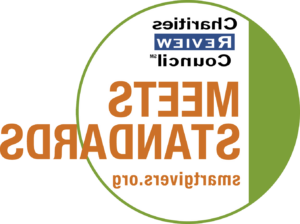Harvard professor and expert in recovery addresses the science of addiction and support
MINNEAPOLIS, (Feb. 13, 2018) – The misuse of and addiction to opioids is a national health crisis and one that is of great concern right here in Minnesota. The number of Minnesotans who died from opioid overdoses grew 500% from 1999 to 2014 (CDC, 2016). As part of efforts to address the opioid crisis, ServeMinnesota announced today that it will leverage the people power of AmeriCorps to help people stay in recovery.
ServeMinnesota, the home of AmeriCorps in the state, is launching two new initiatives to engage people in recovery:
· AMERICORPS SERVICE FOR THOSE IN RECOVERY
ServeMinnesota is seeking people in recovery and offers an opportunity to serve in one of our existing high-impact programs such as Reading Corps or Math Corps. These purposeful service opportunities can be a vital part of the recovery journey.
· RECOVERY CORPS
In this brand new program, those with direct or indirect experience with recovery have the opportunity to leverage their own experience and success to work with teens and young people who are also in recovery. They are not counselors or sponsors but serve as mentors who have been there before and know first-hand how to build and sustain a meaningful life in recovery.
“More than 20 million people are in recovery nationwide, and sustained recovery requires building a life filled with purpose, community and service,” said Audrey Suker, CEO of ServeMinnesota. “Research consistently shows that these are the three most critical elements of staying in recovery, but are often elusive due to social stigma and a lack of opportunities for meaningful engagement. AmeriCorps programs have these tenets at the core of their work.”
ServeMinnesota convened a panel of experts to address this issue with local members of the recovery community, policymakers and other community leaders. A keynote by Dr. John Kelly, founder and director of the Recovery Research Institute and professor of Psychiatry at Harvard Medical School led the proceedings, followed by a discussion with Dr. Roger Laroche, Medical Director of Addiction Services, Allina Health; Claire Wilson, Assistant Commissioner, Minnesota Department of Human Services; and Mark Wright, Senior Vice President and Director of Research, Federal Reserve Bank of Minneapolis.

About ServeMinnesota
ServeMinnesota is a catalyst for positive social impact, working with AmeriCorps members and community partners to meet critical needs in Minnesota. ServeMinnesota moves research to practice through the power of national service. As a nonprofit organization, it improves the lives of Minnesotans by offering life-changing service opportunities to thousands of individuals who focus on education, affordable housing, employment, recovery or the environment. Its commitment to evidence-based practices, continuous program improvement, and strong community partnerships ensures national service is positioned to make meaningful contributions to our state.
ServeMinnesota has created two innovative strategic initiatives, Minnesota Reading Corps and Minnesota Math Corps, that are working to close the achievement gap and help struggling students become successful learners. Combining the people power of AmeriCorps with research-based strategies, ServeMinnesota addresses the most intractable problems and shares its proven practices nationally. For more information, visit h6q9.917877.com.
About John Kelly, Ph.D.
Dr. Kelly is the Elizabeth R. Spallin Associate Professor of Psychiatry in Addiction Medicine at Harvard Medical School – the first endowed professor in addiction medicine at Harvard. He is also the founder and Director of the Recovery Research Institute at the Massachusetts General Hospital (MGH), the Program Director of the Addiction Recovery Management Service (ARMS) and the Associate Director of the Center for Addiction Medicine at MGH. Dr. Kelly is a former President of the American Psychological Association (APA) Society of Addiction Psychology, and is also a Fellow of the APA and a diplomate of the American Board of Professional Psychology. He has served as a consultant to U.S. federal agencies and non-Federal institutions, and foreign governments. His clinical and research work has focused on addiction treatment and the recovery process, mechanisms of behavior change, and in reducing stigma and discrimination among individuals suffering from addiction. For more information, visit www.recoveryanswers.org.





